
Shutterstock.com / PJ
The results of the Royal Pharmaceutical Society (RPS) national pharmacy board elections are due to be announced on or around 22 May 2018. In order to get to know this year’s candidates and find out more about what they stand for, The Pharmaceutical Journal asked for responses to two questions. Here, the candidates propose what and how their professional experience would contribute to a position on the board.
English Pharmacy Board election candidates
- Claire Anderson, academic
- Catherine Armstrong, primary care pharmacist
- Harry Cotterill, hospital pharmacist
- Sultan (Sid) Dajani, community pharmacist
- Jane Devenish, community, cross-profession pharmacist
- David Gallier-Harris, community pharmacist
- Thorrun Govind, community pharmacist
- Tohidul Islam, community pharmacist
- Hala Jawad, GP practice/community pharmacist
- Asim Mirza, practice/community/new roles pharmacist
- Hemant Patel, community pharmacist
- Stephen Riley, primary care pharmacist
- Paul Rutter, academic
- Aamer Safdar, hospital pharmacist; academic
Welsh Pharmacy Board election candidates
- Michael Curson, senior primary care pharmacist
- Janet Gilbertson, head of organisational development, education and learning at Cwm Taf University Health Board
- Jodie Gwenter, education and training lead, ABMU
- Rafia Jamil, senior practice support pharmacist
- Dylan Lloyd Jones, pharmacy manager, Welsh contractual support manager, GP support pharmacist
- Fiona Jones, Clinical lead pharmacist in primary care
- Helen Lewis, Community locum pharmacist
- Cheryl Way, national pharmacy and medicines management lead
England
Claire Anderson, academic
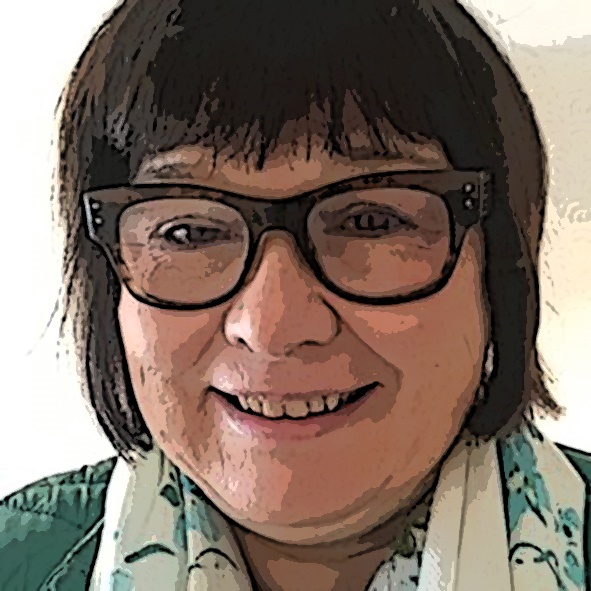
I bring six years of valuable experience of serving on the English Pharmacy Board (EPB) and I am keen to continue for my voice to be heard. I have served on major university and International Pharmaceutical Federation (FIP) committees. I am also chair of the Host Committee for the FIP World Pharmacy Congress in Glasgow in September 2018.
I am a systems leader, and a strategic critical thinker. While being collegiate in my approach I am not afraid to stand up for what I believe in. I have wide-ranging high-level national and international contacts in education, policy and practice in pharmacy and beyond. As a leading professor in pharmacy practice I am a confident speaker and media presenter.
I understand the issues facing pharmacy and the importance of developing a strong evidence base for new roles. I have been pivotal in developing roles like pharmacy in GP surgeries, pharmacists in care homes and through the RPS innovators forum. I’m leading a large project funded by the UK government’s Department for International Development to transform pharmacy and chemistry education in Kenya. My research focuses on pharmacy practice and education, recent projects including evaluation of the NHSE clinic pharmacists in GP surgeries initiative, evaluation of new models of care, medicines at the end of life, pharmacy education and workforce. I will work hard to ensure that pharmacy is always at the forefront of healthcare and that our workforce has the capabilities to deliver.
Catherine Armstrong, primary care pharmacist
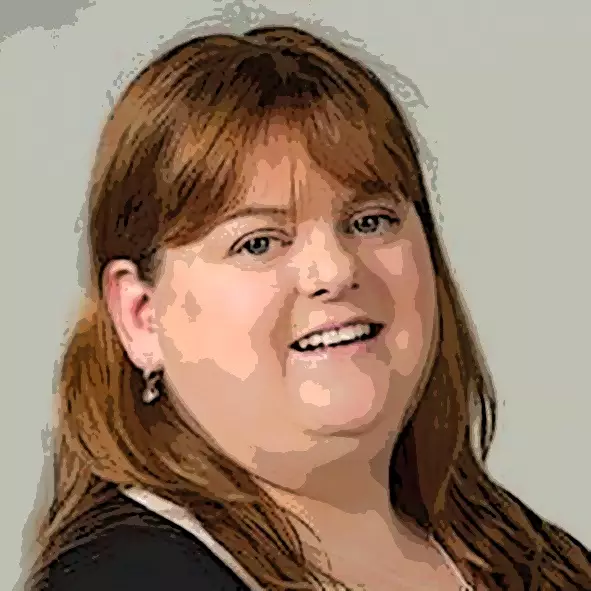
The only unique contribution I can guarantee is myself – there is only one Catherine Armstrong (some may think that’s a good thing!). I would be doing my existing board colleagues and the other election candidates a disservice if I were to assume that I was the only person able to bring a particular skill or contribution.
As an incumbent, I am aware of what being a board member means, the time commitment needed and how to adapt that within my day-to-day job and have a good work-life balance. From two different periods on the EPB I can add to the RPS organisation memory which, given the various changes that there have been over the past one to two years, is of benefit. That is not to say that change should be avoided, quite the opposite. I can honestly say that the board now is different to that in 2010, as is the overall organisation. Lessons have been learnt but there is still a long way to go to fully engage with our members and understand what they want from the RPS.
The EPB members should represent all of pharmacy not one sector, but it is necessary to draw upon the individual expertise. Daily, I engage with primary care clinicians and get them to work with pharmacists and see the benefit of what pharmacists can offer. My skills lie in influencing change and understanding primary care at the coal face. I can see where pharmacists can add value and expand our future roles.
Harry Cotterill, hospital pharmacist

I am a young pharmacist, and I’ve been trained on a style of degree that simply did not exist previously. I was trained with the focus being the patient, their experience, and how pharmacists are integral to the education of both patients and other healthcare professionals. I feel as more degrees shift this way the RPS needs to reflect the demands young pharmacists have to be ever more clinical.
I trained exclusively in community but am now a hospital pharmacist, and as such I have seen issues unique to each and issues that cross the sector divide. I am exposed to practical work processes that are different to my community experience and this has pushed me to think of new ways to deal with issues pharmacists encounter.
I also see youth as a positive as I have not had time to become entrenched in one way of thinking or jaded about the future. I am aware that the suggestions I have made cannot be done as radical changes, but instead would be implemented as incremental improvements. I think that to fix a problem it is imperative to take time assessing the problem first from different viewpoints. However, I also am still at a point in my life where I am just about naïve enough to believe that if you, the profession, and I work hard enough tangible change can be delivered.
What is needed on the board are members from different backgrounds to approach problems in new ways and I am one of those people.
Sultan (Sid) Dajani, community pharmacist
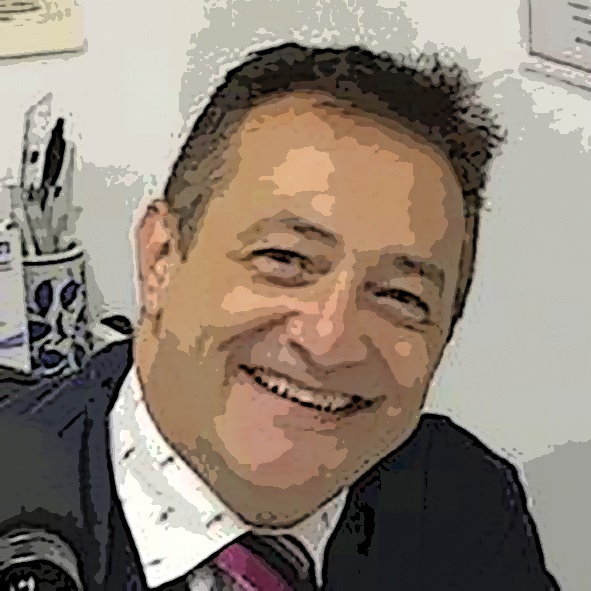
It’s been an absolute honour that consecutive board terms have given me a unique insight into the intricacies of working within a convoluted strategic governance structure which requires a different way of working than in commercial organisations. As a past treasurer of four years, I gained further valuable experience overseeing the 2015 relocation, understanding complex commercial aspects and gearing investment to output.
I’ve uniquely attended and spoken at hundreds of meetings, events and conferences, and gained valuable empathy in every sector to know what makes members mad, sad and glad. My battered tin hat shows I’ve never shied away from the challenges of seeing both ends of the spectrum or working in a range of roles to develop new ideas and new ways of doing things.
I enjoy making a tangible, positive difference at the sharp end of the patient experience and every day I identify things that made a real difference to my staff or patients. It’s these that colour my enthusiasm, drive and contributions during meetings and connect the dots between big-picture strategy and frontline reality.
We’re in unpredictable times, Mystic Meg’s retired and crystal ball predictions still lack guarantee so you could say being multi-skilled helps. I’m an award-winning, full-time pharmacist/prescriber/immediate past treasurer/seasoned chairman/journalist/EU representative/contractor/experienced speaker/multimedia spokesperson and there are still more monikers. I’m looking forward to continuing working to make a better difference and making our professional leadership body deliver much more.
Jane Devenish, community, cross-profession pharmacist
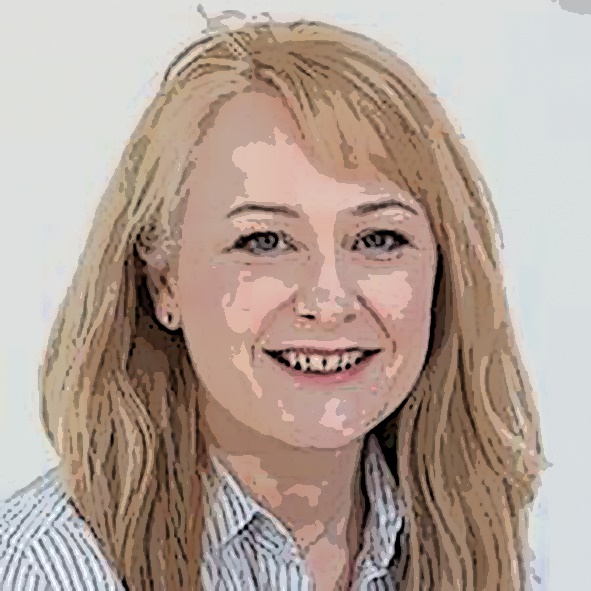
Board members need to be able to work well with others and have the capacity to listen, learn and reflect back information about the health of pharmacy across the country so that the RPS can tackle issues affecting pharmacists, share good practice and offer value for members. They need to be able to stand aside from pre-conceived ideas, and create opportunities for change but understand that existing roles are often also vital. I am confident that I have those skills, and could bring considerable expertise to the board. I have a great links to both pharmacists providing direct patient care and those whose roles are more strategic or support-based, so I hear and see the tensions and great practice across the profession. I’m a heartfelt advocate for the good that pharmacy can do, I’m pragmatic, honest hardworking and, if elected, I’d be proud to support the Society on their EPB.
David Gallier-Harris, community pharmacist
I bring new thinking from an experienced pharmacist. I bring energy and dedication accompanied by resilience gleaned from working at senior board level. I know what will be required of me and know that I am equal to the job.
I am a grassroots pharmacist. I have worked across the sector in a number of roles. I understand the concerns of members. I will bring real-world experience to the board, cutting through the layers of bureaucracy.
I have a clear vision for what we need to achieve. I fervently believe in that vision – the RPS engaging with the Pharmaceutical Services Negotiating Committee (PSNC) and other bodies to deliver a service-based contract. I have no clouded history with any other pharmacy organisations. I am not inhibited by any historic prejudices or old battle scars. I am new to the table and simply want, without agenda the best possible outcome for pharmacy and ultimately for patients and professionals.
A vote for me is a vote for a candidate who is 100% focused on the crisis within community pharmacy and how this is affecting members. I will bring that focus to the board.
Thorrun Govind, community pharmacist

I have a strong record of advocating for the profession across a range of media channels. Whether appearing on BBC Newsnight or engaging with patients as a pharmacist on BBC Radio Lancashire, I look to leverage every opportunity to draw the public’s attention to the value of what we do. My experience would aid the board to not only promote the profession, but to improve communication to the society’s members.
As a local pharmaceutical committee member, I have seen the development and uptake of locally commissioned services and the training required to empower pharmacists to provide them. I have an understanding of developing a strategy at board level, evaluating outcomes, and the importance of engaging stakeholders.
Working on the front line means that I can provide an understanding of how board decisions will impact those working; living with the consequences of those decisions.
I am keen to help develop the future of the profession. I am currently participating in the Mary Seacole Leadership programme and I am shortly starting a pharmacy diploma. I’m keen that the RPS engages with younger pharmacists, to help ensure the sustainability of our industry. I believe I can provide this link to the board, ensuring that younger pharmacists feel just as supported post-registration as during their registration from the RPS. I can provide my insight into the challenges they face to ensure the board remains in touch.
I’m standing for a fresh voice. A voice for pharmacy, a voice for the individual.
Tohidul Islam, community pharmacist
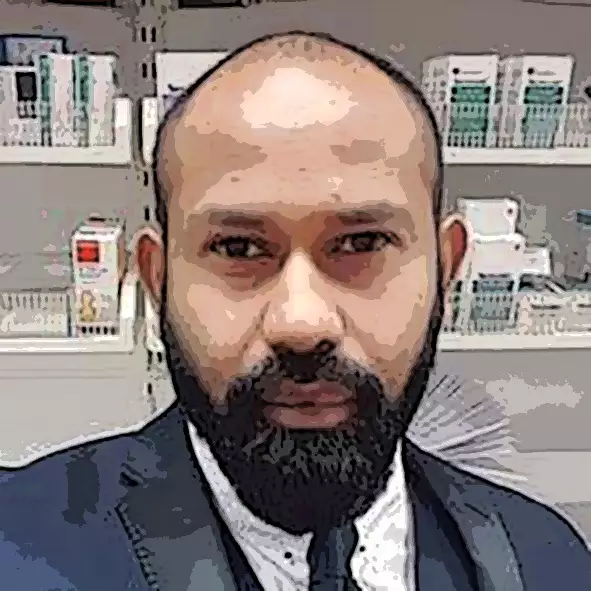
With my large network of pharmacists I would be able to help the RPS better engage with both members and non-members. One thing the RPS is lacking is social media presence and engagement. With just over 50% membership and just under 11% voter turnout last year there is a much room for improvement. I would like to see a campaign for 100% RPS membership. I will be campaigning for this through the RPS and social media. We need the RPS to have a powerful unified voice. We cannot have this if the profession is fragmented and pharmacists have a low morale. RPS has a great history and it can have a great future but we need every organisation that claims to represent pharmacy to come together and help strengthen it and give it the loud and powerful voice it should have when it represents us. I would work with everyone to help make this a reality. After all, how can we promote the RPS internationally when we don’t even believe in it enough to be paid members? I have been working with Mahendra Patel to create links with pharmacy bodies across Europe and Asia on social media and on my own Global Pharmacist Network and will continue to do so with vigour. Being a board member would enable me to do that with a stronger voice.
Hala Jawad, GP practice/community pharmacist

I have an excellent social media standing and am experienced in working with a wide range of healthcare companies and NHS organisations. I would use my skills and network to ensure the RPS membership and pharmacy in general is represented in the best way possible.
The General Pharmaceutical Council (GPhC) revalidation initiative has recently been introduced and this is cause for concern for many pharmacists. I would like to support pharmacists via the RPS in ensuring that their GPhC revalidation is as smooth as possible. Patient safety and information governance are also part of a more responsible pharmacy system as a result of the recent general data protection register (GDPR) rules, and I am keen to ensure that pharmacy is in line with GDPR in the most efficient way possible.
I believe that the RPS can support pharmacists in many ways with the changing landscape of the pharmacy profession. From a pharmacy contractor perspective there are many concerns with the changes in the pharmacy contract and price concessions and forever reducing margins – I am keen to ensure that the RPS can work in collaboration with the PSNC and other community pharmacy organisations to help support pharmacy services in the heart of the community. I am also a champion of other pharmacy sectors and will equally advocate their needs.
Asim Mirza, practice/community/new roles pharmacist
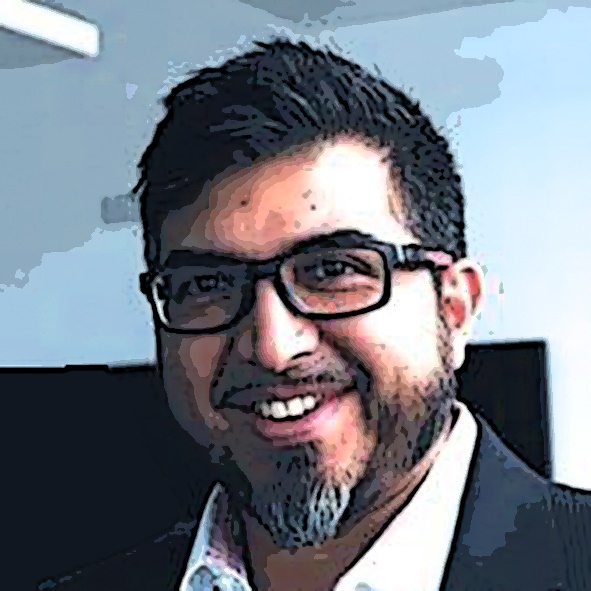
Unique insight into collaborative, new ways of working and alternative funding channels.
My career has led me from community pharmacy ownership, a hub/spoke pharmacy business to running a company that is focussed on diverse roles for pharmacists. This includes running pharmacist-led clinics for GP practices, care homes, CCGs and other primary care organisations through to using pharmacist expertise to inform emerging artifical intelligence (AI) and machine learning tech. We are now working to combine our expertise in these distinct fields to bring some of our primary care services into the community pharmacy setting.
I understand different funding channels because I apply for them. For example, I recently completed an Innovate UK bid that incorporates an AI chatbot that lives in your smartphone and uses ‘nudge theory’ to encourage diabetes prevention. The pharmacist is central to point of care, initiation and delivery of the service.
My skills and experience uniquely place me in a position to understand the future of the profession and ensure the society is ready for what is ahead.
Hemant Patel, community pharmacist
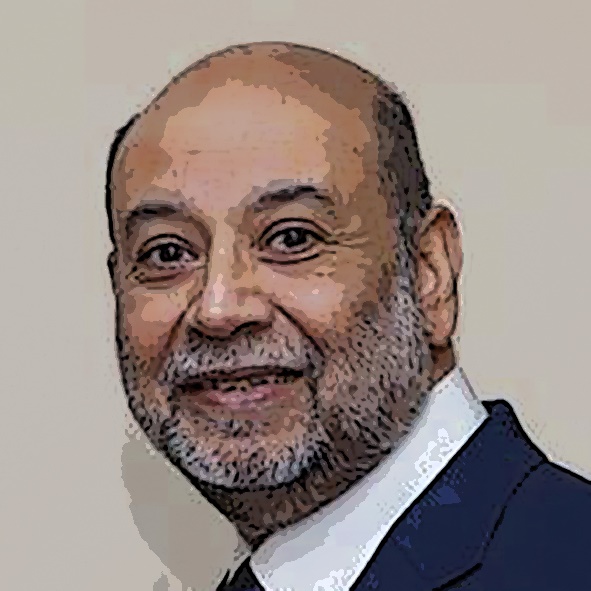
The unique qualities needed to drive a large and important project that I am proposing for the profession, ‘Pharmacy 2025’, a vision for the future, would require experience, problem-solving skills, ability to recognise our unique history as a noble science-based profession yet forward looking, ability to constructively challenge to force clarity, personal resilience and influencing skills.
RPS has the opportunity and a need to create a sensible and sustainable plan, supporting the diverse profession to think through the details of how things will work and then delivering in line with the agreed self-created plan.
But, that is not enough! We must, from the start, also design a way to see through to the end.
I believe a compelling and ambitious vision ‘to make Britain the safest place to receive most effective medicines’ will have support from all sectors of the profession from the academia, industry, hospital, community, to primary care and others.
Firstly, I am still curious and passionate about the profession of pharmacy and having served four terms as president of RPS I have the knowledge, skills and ability to contribute to such a large project. I contributed to RPS’s
Pharmacy in A New Age (PIANA)
and conceived and led the
Pharmacy2020
project. Repositioning pharmacy in the world where we take account of artificial intelligence, robotics, technology, genomics, new discoveries, social and political changes is no small task. But, it needs doing to secure a future for a diverse and evolving profession and to regain confidence and good reputation.
Stephen Riley, primary care pharmacist

I am passionate about supporting pharmacists and developing our profession. I have experience working with NHS England in the devolved health economy to commission and transform pharmacy services. I champion pharmacy with local leaders and commissioners. I am in a unique position of having current practice experience and regularly deliver patient services in community pharmacies. In my NHS England role I also lead the pharmacists in GP practice pilot, and owing to devolution have worked to increase the permitted pharmacist resource and develop better links with other sectors.
I have experience of working with organisations such as National Institute for Health and Care Excellence and RPS to develop national policy and guidelines. I have experience of working at board level with the Pharmacists’ Defence Association Union (PDAU), developing the Safer Pharmacy Charter and Road Map Plan for Pharmacy. Also, working as a Trustee of Pharmacist Support, working with a wonderful team to help our colleagues at times of need and develop services to help us stay well to deliver patient care. I have developed a lot of experience of working collaboratively with various organisations.
I understand and have faced the pressures, challenges and opportunities facing our profession. I have a clear understanding of the changing NHS commissioning, economical and political landscape impacting upon our profession. Most importantly, through work with the PDAU as representative I have experience of supporting individual pharmacists at their times of greatest need and fighting some appalling conditions.
I am standing to support pharmacists and develop the profession.
Paul Rutter, academic
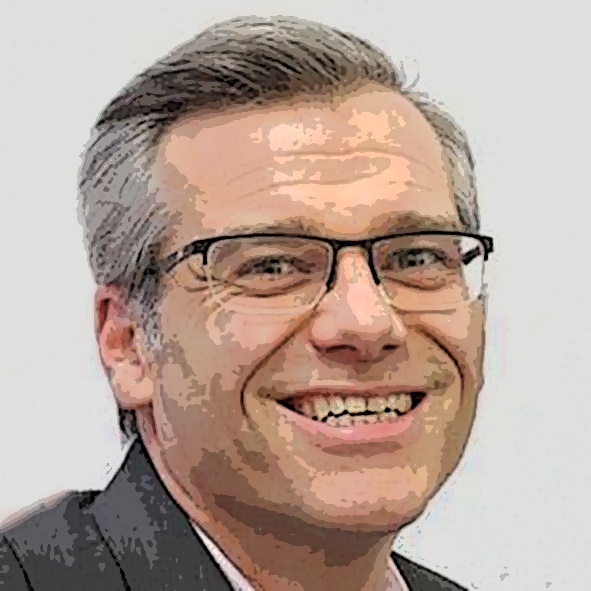
I feel that after 25 years in the profession I now have enough experience and knowledge about pharmacy and healthcare to make a meaningful contribution to sit on the EPB. I also believe that my role as an educator allows me to have a rounded view of the profession and I have no vested interest in any one sector of the profession. Being in academia allows me to be cognisant of current health policy and the effect this has on practice and future education for pharmacists. I have to attend Health Education England (HEE) and commissioner events, liaise with local professional networks and interact with chief pharmacist networks, meaning I understand the pressures faced on the workforce even though I may not be on the front line. I believe that my experience and skills in supporting pharmacists, and others, in education and research enables me to bring objectivity underpinned by evidence to the EBP.
Aamer Safdar, hospital pharmacist; academic

As an experienced hospital pharmacist who specialises in education, training and development I will bring my knowledge and experience of both hospital pharmacy practice and workplace based education. I work closely with my hospital pharmacy colleagues in London and beyond in relation to the workforce development agenda ranging from pharmacy assistants through to senior pharmacist development. I work closely with partner universities, King’s College London and University College London on undergraduate and foundation pharmacist programmes and with HEE in relation to preregistration pharmacists and pharmacy technicians. This enables me to provide a well-rounded perspective on hospital pharmacy matters.
Outside of work, I am a school governor for a high-performing secondary academy where we are forming a multi-academy trust; I have been invited to become one of the trustees. I chair the staffing, curriculum and pay committees and do the head teacher’s performance review with the chair of governors. I am the link governor for the sciences, humanities and the sixth form. This involves working with the head teacher on strategy, policies and governance, which includes due diligence. The contributions I make in my role as a governor in mainstream education directly relate to many functions of the board and where I can provide a unique contribution.
I have been fortunate to complete a variety of postgraduate qualifications in clinical pharmacy, education, management, leadership and service improvement. Having looked at pharmacy from outside of the goldfish bowl, I see the world very differently to my pharmacy colleagues on the board.
Wales
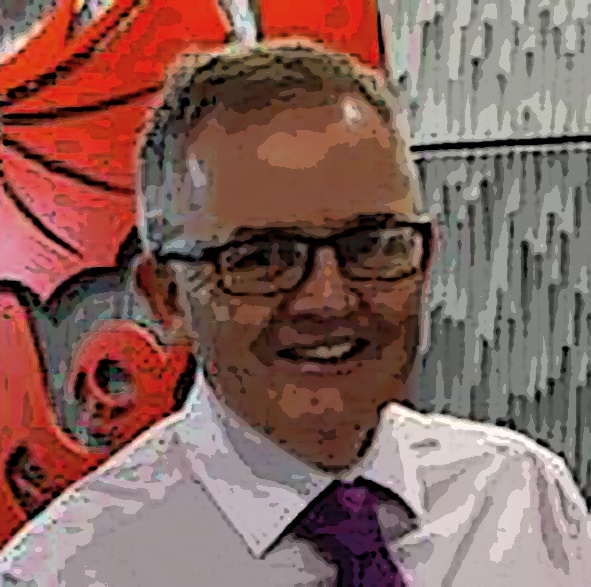
Michael Curson, senior primary care pharmacist
I have a broad range of experience in hospital, community and primary care pharmacy, which has given me a solid grounding, and, to varying degrees, I have an understanding of these three areas of pharmacy practice. I have experience of working in two differing national boards and I am fully aware of the governance that a board should confer on the organisation. I am not afraid to question but I believe in the democratic process and am a committed team member. I have a real drive within this RPS role to create a strong local RPS presence, which can bring pharmacists together both professionally and socially. This may help the revalidation process moving forward, but more importantly could provide a local network of support for individual pharmacists who may feel isolated professionally. I am fortunate in my role that I have a reasonable handle on the strategy and direction for pharmacy in Wales and can represent my profession in my working environment to elicit change on the ground.
I can’t claim to have any more unique qualities than the pharmacy professionals I deal with every day; we work hard, are diligent and deeply care about our profession. In this significant time of change I feel we should not forget the fact that not everyone is comfortable with change and the pressure this brings. Wellness and well-being principles should infuse our professional body. I’m delighted to say that this stream of work is live and relevant within RPS Wales.
Janet Gilbertson, head of organisational development, education and learning at Cwm Taf University Health Board
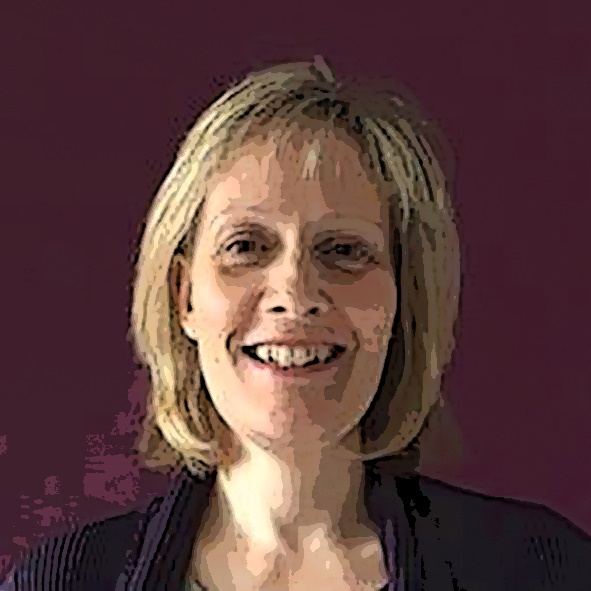
I have a strong track record of leadership and management at a senior level, as an All Wales Principal Pharmacist (education and training) and now in the wider health board as head of organisational development, education and learning. This has developed a unique expert knowledge and skills set in organisational transformation to contribute to pharmacy in Wales right now.
I have been a strong, progressive and authoritative voice for the profession in national arenas, leading Modernising Pharmacy Careers for Wales and underpinning workforce planning. I have a demonstrated ability to think, plan and implement at a local and national level, taking cultural and political issues into account.
I believe in creating strong and collaborative working relationships that enable trust and so allow identification of shared purpose and flexibility in highly complex negotiations, in order to transform progress.
My experience in the WOD arena has broadened and deepened my knowledge and skills in leadership and organisational development both at individual and strategic levels. I am a qualified executive level coach and have a Master’s in Organisational Analysis and Leadership. I am keen to offer all of these skills and my leadership as part of Welsh RPS board.
The current healthcare professional workforce shortage crisis means our opportunity is now. I know first hand the value of the skills and knowledge sets inherent in all pharmacy professionals. Availability and integration of our skills and knowledge across the wider health community would transform the response possible to the increasing demand of healthcare services.
Jodie Gwenter, education and training lead, ABMU
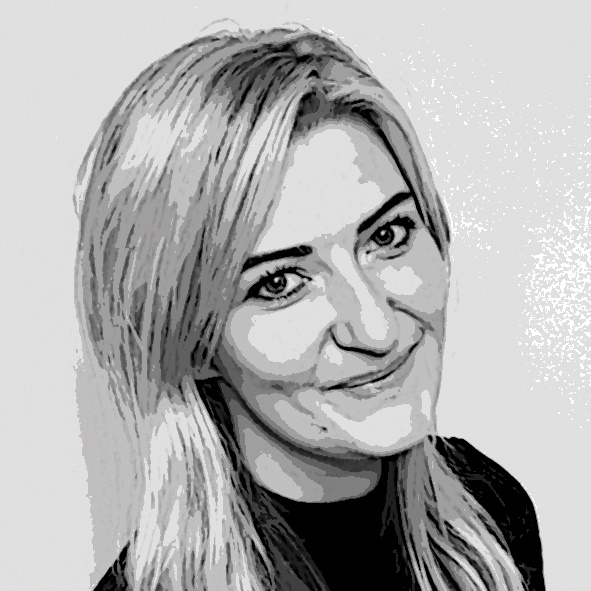
I have practiced in hospital pharmacy since qualifying. It has become a significant part of my career and life, and my passion for improvement has undoubtedly become my most prominent motivator. My energy and inspiration is drawn from the notion that we can always do better. I pursued a role within academia, recognising the rich opportunity for influencing how our pharmacists are trained. I became a leading figure for interprofessional education to enrichen respect for multidisciplinary care. I worked within medical schools and postgraduate spheres to inspire colleagues to the contributions of pharmacy and improve the safety of prescribing practices. I am undertaking qualitative research on the pharmacist role within NHS 111 to evidence their contributions within urgent care services. I am most definitely an individual with courage of conviction. If I have a vision and viewpoint on change, I see it as my professional obligation to get involved and see it through to fruition.
Working across national (England and Wales) and even international boundaries (Uganda) has equipped me with the right attitude and resilience for partnership working. I face challenges with excitement and commitment that extends beyond my professional landscape into a personal portfolio of sporting achievements. Through sheer grit and determination I achieve my goals and I am proud to be on that successful list of Ironman finishers. These are the unique attributes and contributions I shall bring to the board and I hope they fulfil the required criteria fitting of your vote.
Rafia Jamil, senior practice support pharmacist

Being an early-year pharmacist, I will bring a fresh perspective to the board. I am very keen to work in collaboration with other board members, to understand their expectation and vision of the future of pharmacy, to learn from their experience and offer my ideas to realize the goal of advanced pharmacy practice. Having worked both in primary care and community pharmacy, I have an understanding of what challenges my peers in both sectors are facing and how they feel about that. I strongly believe in collaborative working with not only other healthcare professionals but also with pharmacists working in different sectors of healthcare, which can improve the provision of patient-centered care.
The RPS Foundation and Faculty programmes have always been a source of inspiration and guidance for me personally and I am eager to contribute in inspiring more pharmacists to sign up to these programs to build and enhance their portfolio. Not everyone looks at their career the same way and I want to ensure that all pharmacists, whichever sector they may be from, members or non-members, feel that the RPS is a place to refer to when they need guidance or inspiration, at any point in their career. I also want to make sure that members feel listened to; I am committed to be visible to members and present their views at the board and strategic levels. My commitment and passion to serve my profession will augment the society’s vision and be a source of inspiration to my peers.
Dylan Lloyd Jones, pharmacy manager, Welsh contractual support manager, GP support pharmacist

I’m a patient-focused community pharmacist with over 17 years’ experience of practising in Wales. I also have experience as a GP pharmacist and prescribing advisor in a GP practice. I’m a qualified and practising independent prescriber and offer many clinical services. These include an NHS-commissioned prescribing service for common acute illnesses from a community pharmacy for the patients of my locality.
My experience of working in multidisciplinary teams has allowed me to develop a collaborative approach to providing healthcare. This insight has enabled me to develop complementary services. This approach provides mutual benefits, maximises impacts and demonstrates a more preventative and prudent approach to local healthcare delivery. With these skills, I have been able to consider the challenges of both sectors and provide innovative solutions to holistic services for the benefit of the community.
I have represented and promoted the virtues and future possibilities of pharmacy to a variety of audiences at all levels. I have delivered talks and engaged with assembly members, health organisations, medical professionals and local patient and community groups. It is my ambition to see pharmacy succeed as a whole at the forefront of healthcare.
I sit on several regional committees from local drugs and therapeutics committees to being a local contractor representative for Community Pharmacy Wales.
With my diversity of roles, skills and experience, if elected I will be able to support the Welsh Pharmacy Board and be a strong voice and advocate for the profession.
Fiona Jones, clinical lead pharmacist in primary care
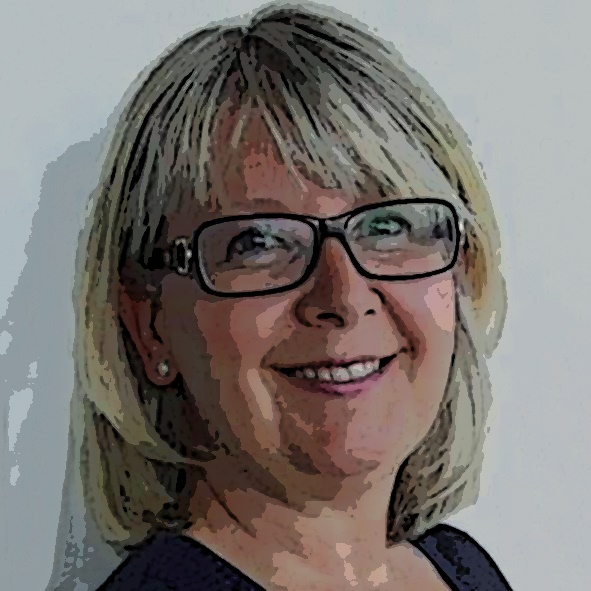
With a career extending across community and primary care, I can see the bigger picture. I have had three years on the board and in that time have engaged with assembly members, advising them of the benefits of clinical services in the community similar to what we have done in primary care. I have given them examples of community pharmacists, GP pharmacists and hospital pharmacists working together on discharge prescription transfer. I have championed the portfolio career with the split preregistration across sectors.
I would like to see the development of foundation training across sectors where pharmacists can increase their clinical examination and consultation skills under a mentor/senior IP pharmacist.
I would like to see more government-funded postgraduate qualifications for community pharmacy.
I would like to work towards increasing the number of pharmacists within clusters in Wales, pharmacist input into every nursing/residential home and a national integrated domiciliary medicines review service, extending the service I started in Conwy across the whole of the country.
Helen Lewis, community locum pharmacist
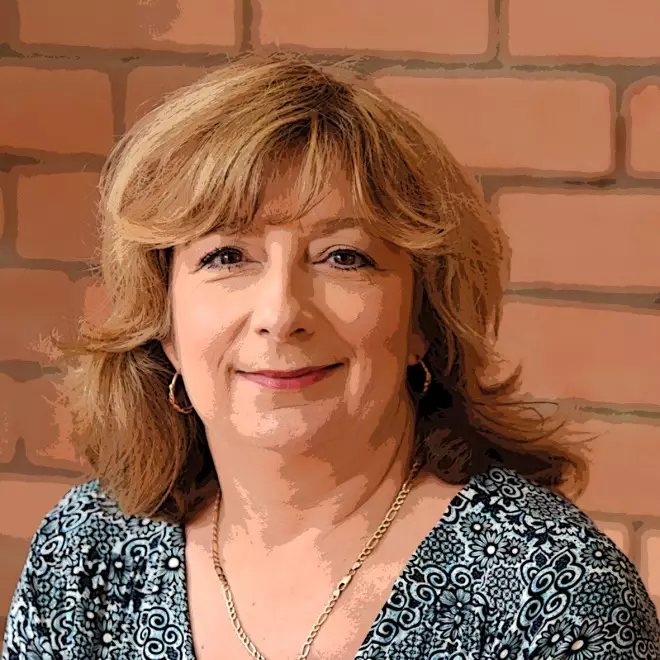
I struggled with this question. I have high professional standards, I’m not afraid to ask uncomfortable questions, I’m truthful and have integrity but I am uncomfortable with self-promotion. I am happy, however, to promote the good work my peers do and happy to promote my profession. I’m not afraid to challenge when I don’t agree but hopefully in a constructive way. I’m not a leader in my field, I’m a grass roots pharmacist who wants to ensure the ambitions and concerns of all are taken into account to take the profession forward. I believe a board is the sum of its parts, and in Wales we have representation of all sectors and we need grassroots input as well as that of recognised leaders. I understand why pharmacists do not engage with the RPS and specifically in elections, after seeing some of the social media around these elections we need to do better. I would be proud to represent my peers on the Welsh Pharmacy Board (WPB).
Cheryl Way, national pharmacy and medicines management lead
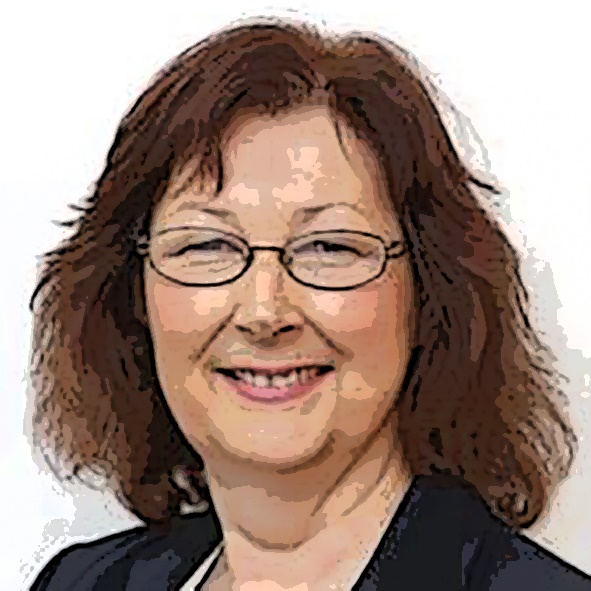
I would bring my experience of working for a national informatics service for the last 12 years. This work requires me to be aware of the policies for health service delivery in Wales in order to write business justifications. I am therefore able to align these with the policy developed within the profession to implement strategies for their delivery. I am a member of a number of project teams that design, develop, implement and support technology for pharmacists in Wales. As a member of the RPS Digital Forum, I am well informed about IT developments in pharmacy across Great Britain, and would keep the board updated on these.
I also have many years’ experience of working at a senior level within hospital pharmacy and currently represent this sector on the WPB. As I have spent most of my career in Wales, I have worked with many people involved in the provision of pharmacy services in community, hospital and primary care, as well as those in universities, government and professional bodies. This has enabled me to develop good working relationships, which would help me to represent members and the wider pharmacy community at the board.

